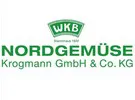The cold snap in the important growing regions of Morocco and Spain, as well as the early end of the season in Chile, have led to a supply shortage on the blueberry market.
"There is no question of empty shelves, because we are still able to supply the food retail sector in line with demand. However, there is a forced change increasingly to small formats - 125 and 300 g trays instead of large formats - such as 500 and especially 700 g - and also larger promotions are currently hardly made. Such a shortage of commodity became ever more rarely in the past years and one knows actually only from the past in which by far not so much commodity was cultivated, sketches Christiaan Koellreuter, managing director of the north vegetable Krogmann GmbH & Co. KG with seat in Buchholz/Aller, northern Germany.
Christiaan Koellreuter during a company visit to FreshPlaza in summer 2022.
The northern German company has already been one of Germany's largest packers and service providers of cultivated blueberries for several years and has state-of-the-art premises and new plant technology in the service center built in 2018. Thanks to strategic partnerships in Germany and abroad, goods from all the world's renowned growing regions can be accessed.
"Chile was a strong growing country for blueberries until a few years ago, but is now losing market share. Meanwhile, Peru is pressing the market with massive volumes. The same applies to Morocco, where blueberry cultivation has expanded considerably in recent years. There is also the danger that an oversupply will develop at some point."
Insight into the service center in Buchholz/Aller
Currently, goods are mainly received from Morocco, overseas goods from Chile and Peru as well as the first Spanish products are mainly of a supplementary nature. "Due to the too low temperatures, blueberries are currently ripening slowly. However, the hanging of still unripe berries is very good. Thus, with rising temperatures and more hours of sunshine, we can expect rapidly increasing harvest volumes. This should probably be the case around Easter," says Koellreuter, who recently inquired about the situation on site in Morocco.
Packaged blueberries for German food retailers. Given the limited quantity availability, the price level would have to be higher, according to Koellreuter.
In the end, blueberries can be sold all year and consumers often spontaneously reach for the fruit at the POS, Koellreuter notes. "That means sales are available even with larger harvest quantities. It is an attractive fruit that is ideal for in-between snacking. Despite the huge increase in consumption, there is still room for improvement in the German market, for example."
Further information:
Christiaan Koellreuter
NORDGEMÜSE Krogmann GmbH & Co. KG
An der Autobahn 50
D-29690 Buchholz/ Aller, Duitsland
Tel: +49 (0)5071 96 80 00
Info@nordgemuese.de
www.nordgemuese.de
